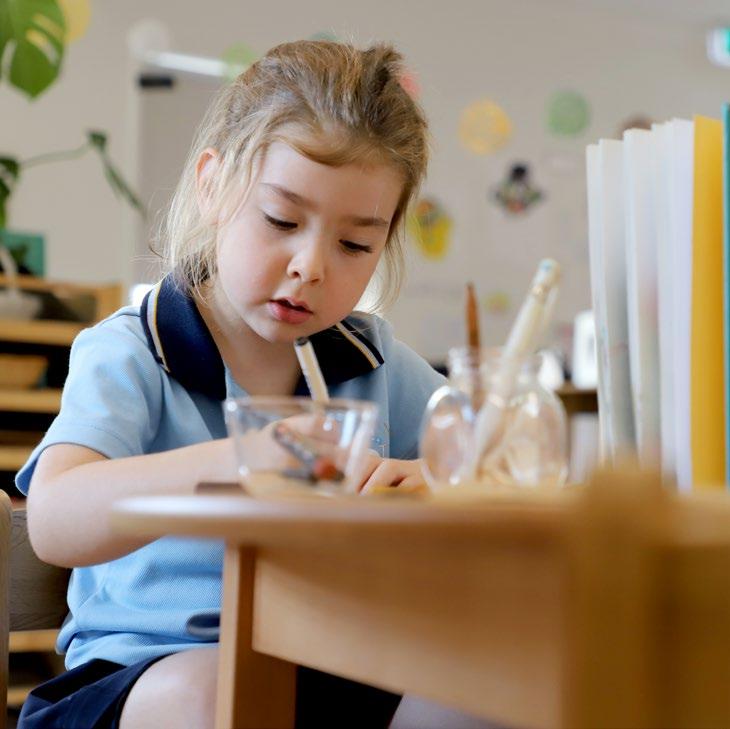
2 minute read
Ms Melissa Campbell Celebrating a Centenary of the Written Word
Name: Ms Sarah Bethune Title: Head of ELC Date: 18 May 2021 Strategic Intent: Academic Achievement
DEVELOPING THE YOUNG INQUIRING MIND
Young children have naturally curious minds and a yearning to ask lots of questions. They want to know how things work and why things happen. This is one of the ways in which they make sense of their world. Questions are a powerful tool for educators to promote children’s thinking and learning. They exercise their sense of agency and develop complex problem-solving skills by asking questions and having opportunities to explore their curiosities. Within our Early Learning Centre (ELC), we take an inquirybased approach to our curriculum. This captures the children’s spirit of curiosity, creating an engaging curriculum that places the children’s questions at the centre of their learning. Whilst inquiry tends to develop spontaneously as children engage with their questions and ideas, educators plan learning experiences with specific outcomes in mind. The curriculum is therefore responsive and flexible, and can adapt to the children’s ideas and questions. Their learning becomes more enriched, meaningful and contextual. Young children learn best through active, hands-on discovery where they can think, hypothesize, predict, problem solve and discover their own answers. When educators support children to investigate their own ideas, they foster independence and autonomy and promote inquiry and exploration as valuable approaches to learning. Our ELC philosophy acknowledges our belief that children are capable learners, and active constructors of their own knowledge and understandings. This view reinforces the need for experiences that offer children opportunities to pursue their interests and shape their own learning. The child’s sense of agency is promoted with opportunities to make decisions, and have a voice. This motivates and empowers them as they feel valued, respected, and in charge of their own learning. “Inquiry-based learning provides an opportunity for early learners to develop student voice and agency, as their ideas and interests spark and extend learning possibilities.” Early Years Learning Framework (EYLF) The inquiry-based approach is characterised by a depth of learning. Educators scaffold deeper thinking by asking open-ended questions, provoking the children’s curiosity. Questions such as “What do you think…” or “How else could you do this…” challenge the child’s thinking and prompt them to dig deeper with their thoughts. Children typically become absorbed, fascinated and motivated as they explore their interests, and over time, make connections and develop significant understandings. The children’s learning is supported by the educators who use intentional teaching to scaffold and extend the children’s thinking and ideas. There is less transmission of knowledge and more support and extension of the children’s own attempts at understanding. Inquiry is a collaborative process. Children’s learning is enriched when they work with others to solve a problem or investigate an area of interest. Exposure to other ideas and perspectives helps to broaden individual understandings. Within St Catherine’s Early Learning environment, it is our aim to nurture and further develop the inquiring minds of our young learners. In doing this we are fostering life-long skills that will support their learning journey through school and beyond.
Ms Sarah Bethune
Head of ELC










